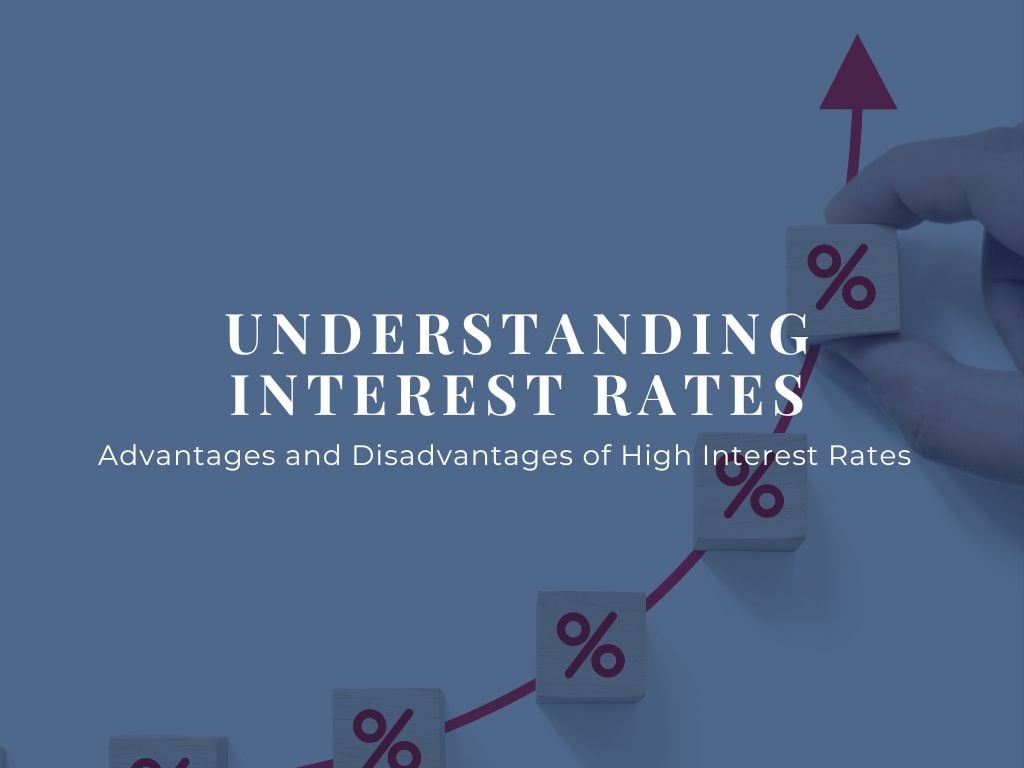
Interest rates have the ability to impact consumer spending, saving, the economy, inflation and so much more. But how exactly do they work and how do they impact you? Here’s everything you need to know about the advantages and disadvantages of high interest rates – and low.
The Federal Funds Rate
In the United States, the Federal Reserve Board (the Fed) sets federal funds rates. The federal funds rate is the target interest rate for banks borrowing money from each other. When you see headlines about rising interest rates, this is typically what those headlines are referring to: the Fed raising the federal funds rate. But why does the interest rate for banks borrowing money from each other matter to you? Let’s see.
Interest Rates and Spending
Banks essentially pass on higher interest rates to borrowers, meaning that when the federal fund rate increases, so do the interest rates for mortgages, credit card APRs and most other business and consumer loans.
When interest rates increase, the goal is to decrease the amount of money available, which therefore makes it more expensive to obtain money. The reverse is also true. When interest rates decrease there’s more access to funds, therefore increasing the money supply. In other words, the lower the interest rate, the more willing and able people are to borrow money. The reverse is also true; higher interest rates make borrowing money more expensive.
Let’s look at an example to see how this plays out in real life. If you could afford a monthly mortgage payment of $1,750 at an interest rate of 6.5% you could afford a $275,000 loan. But with that same monthly budget, at a 3% interest rate you could afford a loan of $410,000. This is a purely hypothetical example of a 30 year mortgage, that doesn’t include taxes and fees, which vary from state to state, but it does show that lower interest rates provide the ability to spend much more.
So, in very broad terms, lower interest rates mean more spending and higher interest rates mean less spending.
Interest Rates, Inflation and Recessions
As consumers we often think of inflation in only negative terms, since it means higher costs, but inflation at a healthy level is actually good. Annual inflation of two to three percent is a sign of a strong economy. The problem is when inflation exceeds that amount, leading to more dramatic decreases in consumer purchasing power.
When inflation starts rising too quickly, the Fed will often increase interest rates with the goal of making it more expensive to borrow money, which therefore decreases the amount people spend. As spending decreases, the price of goods and services should also drop. The opposite also applies. In the midst of a recession, the Fed may lower interest rates to encourage spending.
Increasing or decreasing interest rates is not guaranteed to impact inflation as intended. Obviously, other factors come into play that can impact the economy, but the ultimate goal when the Fed changes interest rates is either to avoid or limit the severity of a recession.
Interest Rates and The Stock Market
It’s not just consumer purchases that interest rates can impact. When interest rates rise it’s also more expensive for businesses to borrow money. This often means less growth and lower profit expectations. In theory, this should lower the share price of a company. What this means for the stock market is slower growth or in other words, a drop in the stock market.
It’s important to keep in mind that this is both general and theoretical. Certain sectors may actually benefit from higher interest rates. Other sectors or even the entire market, may either react to other factors or may act “irrationally” (not in line with theoretical expectations).
More on the Advantages and Disadvantages of High and Low Interest Rates
Putting it all together, what do higher interest rates mean for you and your wallet? First of all, borrowing money will be more expensive. If you’re planning to take out a loan, make sure to account for a higher interest rate.
When interest rates rise, you may also want to consider your current investment portfolio. No one can predict the future of the stock market, but as interest rates increase in 2022, the likelihood of a drop in stock prices increases. This does NOT mean you should pull all of your money out of the market. What it does mean is that you should make sure you’re prepared should a drop occur. Do you have a major purchase you plan to make in the near future with money that’s currently invested in stocks? Are you nearing retirement? Are you currently retired and on a fixed income? If any of these are the case it may be worth working with your financial advisor to make sure you’re prepared no matter what happens. Contact us for a consultation today.
Additional Resources:
FederalReserve.gov, "Board of Governors of the Federal Reserve System"
Investopedia.com, "How Interest Rates Affect the U.S. Markets"
Need a Financial Advisor?
If you are currently looking for help with financial planning, contact us. We are happy to schedule an introductory meeting at your convenience.


